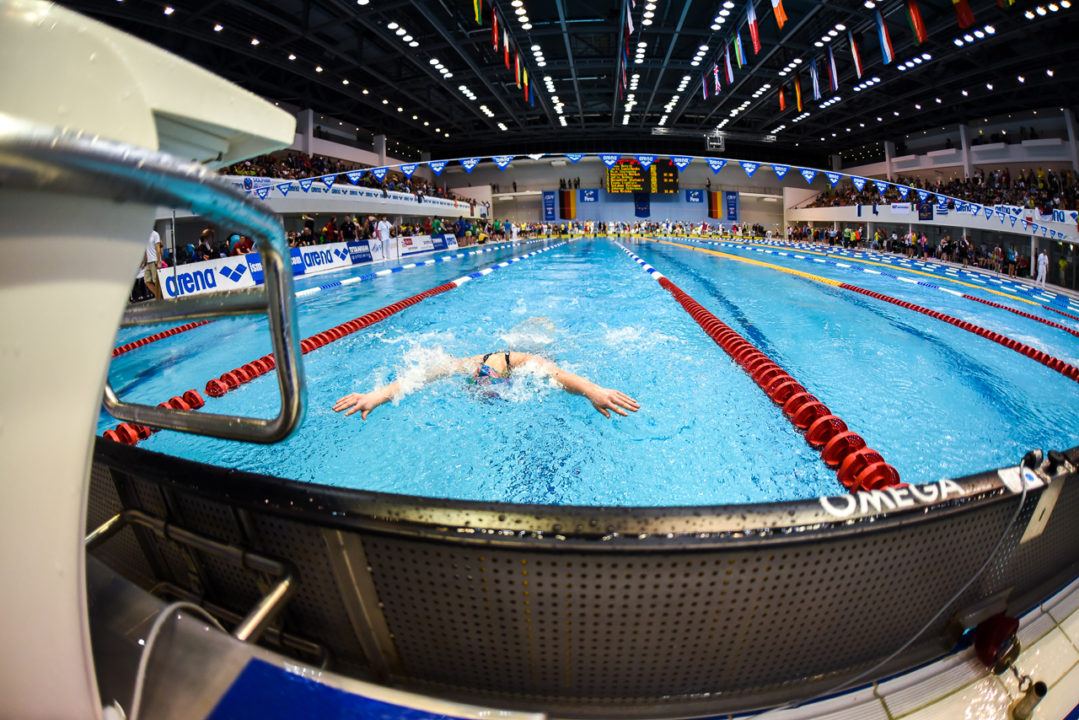Courtesy of Elizabeth Wickham
As swim parents, most of us are extremely involved in our children’s lives. Our kids have tough schedules with practices before and after school, plus weekends spent at meets. They balance their busy swim schedules with academics and trying to have a “normal” life.
Our job is to guide and support them. We’re there to cheer them on and shower them with unconditional love. It’s not our job to take over and make every struggle disappear. When kids run into problems, whether it’s facing a tough coach, teacher, or having to make a decision and prioritize what’s more important to them, we need let them experience it. Their struggle allows growth.
Here are a few tips on how we can help our kids learn from their age group swimming years and become self-sufficient adults:
ONE
Do we lead by example?
When we face trouble, what’s our reaction? Do we run or face it head on? Our kids learn more from our actions than our words. If we have a conflict with a coach, a coworker or boss, do we complain to everyone who will listen, walk away, or do we schedule an appointment to discuss the problem one on one?
TWO
Get out of our comfort zones.
A coach with more than 30 years experience at the collegiate and club level, Tim Hill of the Sharks Swim Team in Friendswood, TX, sent me info he uses for swimmers and parents called Train Ugly. An analogy on this site involved “Jungle Tigers vs. Zoo Tigers.” Those who stay in their comfort zones are “Zoo Tigers” and people who fend for themselves and struggle in the wild are “Jungle Tigers.” Are we keeping our kids in a “cage” by meeting every need and not letting them struggle a little? What happens when they’re out in the real world for the first time? Do we stay in our comfort zones? Or, do we push ourselves to where we’re uncomfortable and forced to learn and grow?
THREE
Know when to step in.
We need to let our kids problem solve for themselves and not step in each time they face a bump in the road. We also need to understand when we should get involved. There are different degrees of seriousness of issues they’ll face. We need to distinguish when they’re wanting our support, wanting a sympathetic ear or when we need to take action.
FOUR
Everyone is different.
There are as many different parenting styles as there are coaches and kids. Something that works for one family may not for another. Kids mature at different ages and some are more independent than others. We need to trust our own instincts, learn from our swimming community, and remember that a lot of learning occurs when things aren’t perfect. Let your kids learn from mistakes and when things are a little messy. Swimming teaches our kids responsibility for their actions and will help them become better individuals.
How does swimming help your swimmers learn and grow?
Elizabeth Wickham volunteered for 14 years on her kids’ club team as board member, fundraiser, newsletter editor and “Mrs. meet manager.” She’s a writer with a bachelor of arts degree in editorial journalism from the University of Washington with a long career in public relations, marketing and advertising. Her stories have appeared in newspapers and magazines including the Los Angeles Times, Orange County Parenting and Ladybug.You can read more parenting tips on her blog.
